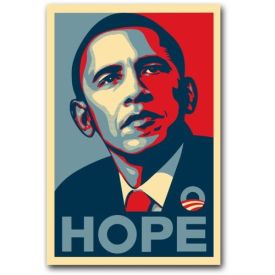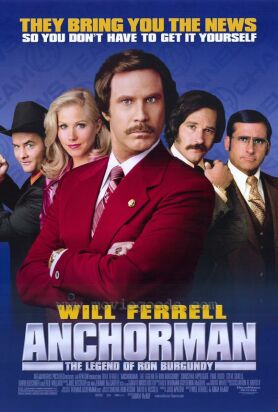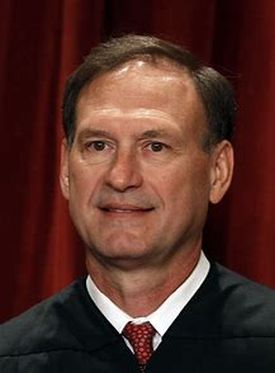The Mystification of Change
From The New CriterionAs an example of media obtuseness, the emphatic adversatives in the New York Times’s headline to Fox Butterfield’s classic story of 1997 — “Crime Rates are Falling, but Prisons Keep on Filling: More Inmates, Despite Slight Drop in Crime” — take some beating. The Times itself tried to top it six years later with a variation on the same theme as Mr Butterfield resumed his sleuthing to probe the mystery of the “researchers” who had made the “surprising” discovery of a 2.6 per cent annual increase in the prison population while, at the same time, “serious crime had fallen.” Those same clueless researchers must since then have turned their attention to foreign attitudes towards America, as they have produced a new contender for Mr Butterfield’s crown — also, naturally enough, from one of his colleagues at the newspaper of record. On the first day of December the Times deigned to notice the following: “World Falls for American Media, Even as It Sours on America.” Correspondent Tim Arango went on to write in full paradoxical mode that: “In the last eight years, American pop culture, already popular” — hmm, do you suppose that’s why they call it “pop”? — “has boomed around the globe while opinions of America itself have soured.”
Gee, how weird is that? Could there be any ideas around about how to explain the mystery of enthusiastic consumers of American pop culture who have developed negative ideas about America? Well, I have one. Perhaps neither Mr Arango nor his editors are frequent enough consumers of American pop culture to have noticed that much of it, especially the movies, has been exceeded in its display of relentless anti-Americanism only by the American news media — prominent among which, of course, is The New York Times itself. More likely than mere ignorance of this fact, however, is the pervasiveness of anti-Americanism in the media world generally and at the Times in particular. There it has become so much a part of the paper’s worldview under the Bushite tyranny that there can be few Times writers or editors who do not simply take it for granted when they encounter it in the popular culture — or anywhere else.
This easy adoption of American anti-American assumptions by certain classes of foreigners could have serious side-effects — besides, that is, our beloved Motherland’s bad poll numbers worldwide. After the surviving Bombay terrorist the week before cited alleged American and Israeli atrocities as the cause of his own, for example, it could hardly be doubted that these carefully cultivated grievances owed something to the media’s overhyping of stories like Abu Ghraib or fabricating them, as in Newsweek’s now notorious Koran-down-the-toilet story of 2005. As Bret Stephens wrote in The Wall Street Journal:
Of course, it’s always possible to fall for a well-told lie. But it’s worth wondering why a media that treats nearly every word uttered by the U.S., British or Israeli governments as inherently suspect has proved so consistently credulous when it comes to every dubious or defamatory claim made against those governments. Or, for that matter, why the media has been so intent on magnifying genuine scandals (like Abu Ghraib) to the point that they become the moral equivalent of 9/11. Some caution is in order: Terrorists, of all people, might actually believe what they read in the papers.
The Times’s Mr Arango, however, was to be found reflexively turning for an explanation of the supposed mystery to the all-purpose media villain of the last eight years: “With the curtain closing on the Bush presidency, pollsters are left to wonder about the long-term effects on America’s standing.” They just report the news, you see. It’s a sort of automatic writing. Something happens. They write it down. Don’t blame the messenger. If all the news about America happens to have been bad since 2003, well, we all know who is to blame for that.
Happily, the seers of the media are beginning to divine that the bad news about America is due for a change. Even Mr Arango allows himself a slight glimmer of optimism on the grounds that, as Steven Kull, director of the Program on International Policy Attitudes at the University of Maryland, told him, the growing prospect of an Obama presidency has wrought “a slight improvement in America’s image abroad after a long decline.” Still, Mr Kull adds, “It’s turned a corner, but it’s not anywhere near positive territory.” Just give it time, Professor! I have a good feeling about this change in the news about America. Surely, if the media have any power to change attitudes, we can look confidently forward to America’s resumption of its position as the “shining city on a hill” that Ronald Reagan used to talk about — and that the media at the time were almost as hostile to as they are to the Bush vision of America as democracy-bearer to the world.
Why, even atrocities like the Bombay massacres might well be prevented merely by the existence of the inspirational figure of President Obama — such, at any rate, seems to be the view of Alex Witt of MSNBC who, according to the Media Research Center, professed himself baffled by the attacks’ coming so soon after the election. “There had been such a global outpouring of affection, respect, hope, with the new administration coming in, that precisely these kinds of attacks, it was thought — at least hoped — would be dampered down.” Was thought by whom? I suspect that, as usual when the media use the passive voice, Mr Witt only means himself and the other Obamolators in the media. For, less than a month after the election, we were already beginning to see that the media’s tendency to idolize the President-elect was merely the equal and opposite reaction to their inordinate hatred of George W. Bush. Obamolatry was the other side of the coin to Bush Derangement Syndrome — and, we might add, equally fanciful as a description of the way power is exercised in America.
The remarkable thing to me was and remains that neither the Bushophobes nor the Obamaphiles seemed to have the slightest self-consciousness about what I persist in regarding their embarrassing condition. Two months ago in this space (see “Carefully Crafted Narratives” in The New Criterion of November, 2008), I mentioned James Wolcott’s suspiciously unironic-sounding proclamation that “I blame Bush for everything and will continue to blame him (and Vice President Dick Cheney) for everything.” More recently, Eugene Robinson of the Washington Post described himself as a “fellow sufferer” from Bush Derangement Syndrome as unashamedly as the TV personality Chris Matthews — now sending out feelers about running for the senate from Pennsylvania — not so long ago said a speech by Senator Obama had made a thrill run up his leg. Obviously, if you believe that everything the 43rd president did was wrong, it must be equally easy to believe that everything the 44th will do must be proleptically right — even when he does exactly the same things as his predecessor. This was the inescapable conclusion from the praise heaped by the media on the new president’s new “pragmatism” in his cabinet appointments — which included what would in any other circumstances have been the astonishing volte face of retaining in his own cabinet, President Bush’s Secretary of Defense, Robert Gates.
Hardly anyone seemed to remember by that point how central to the Obama candidacy, starting out, had been its complete and total opposition to the Bush administration’s defense and foreign policy. The President-elect’s attitude at that time had been essentially the same as that of John Kerry who, when asked in 2004 what he would have done differently, answered “Everything.” A man whose tenure of public office at that time consisted of eight years in the Illinois state legislature and barely two in the United States Senate tried to make up for his lack of experience with appeals to the shock troops of the anti-war left by smearing his main rivals for the nomination simply for having voted to authorize the administration to wage war in Iraq. What might — indeed must — otherwise have seemed, therefore, an egregious betrayal of the anti-war forces which did so much to bring him to power made scarcely a ripple in the press. On the contrary, the Obama partisans therein vied with each other to congratulate their hero for it.
Even the few who did protest, at least those in the mainstream media, did so in an almost apologetic tone. David Corn of Mother Jones, for example, was afforded the hospitality of the columns of The Washington Post to mention, with a gentle, Jeeves-like clearing of the throat: “This Wasn’t Quite the Change We Pictured”
It’s no surprise that many progressives are — depending on whom you ask — disappointed, irritated or fit to be tied. Sure, Obama’s appointments do represent change — that is, change from the widely unpopular Bush-Cheney status quo. But do these appointments amount to the kind of change that progressives, who were an essential part of Obama’s political base during the campaign, can really believe in? Perhaps Obama is trying to pull off something subtle — a sort of stealth liberalism draped in bipartisan centrism. But it’s understandable that progressives are worried. . .For some progressives, Obama’s opening moves may not feel like the change they anticipated. But there’s no rebellion yet at hand. Many are probably holding their breath and waiting to see whether Obama can hijack the establishment for progressive ends.
Hijack the establishment that he himself has put in place? That really is playing a deep game. But when you want to believe as badly as Mr Corn and a great many others want to believe, I guess it makes sense. More straightforwardly approving was Peter Beinart, writing in Time magazine, who went so far as to reassure his fellow progressives that “it’s precisely because Obama intends to pursue a genuinely progressive foreign policy that he’s surrounding himself with people who can guard his right flank at home.”
Senator Obama may be required by the laws of physics to have a “right flank” but who knew that it was also right wing? All during the campaign, there was not a single Democrat, candidate or supporter, who had a good word to say for the policies of the hated Bush administration. Candidate Obama himself exceeded all his rivals in denouncing them and branding himself as the candidate of “change.” You remember “change” don’t you? I seem to remember that it included change not only from all taint of Bushery but also from Clintonism. Could the media have forgotten that already? And yet here he was adopting Bushite measures and Bushite and Clintonist men (and women!) precisely in the area — defense and foreign policy — where “change” had been most expected and being congratulated for it. There seemed nothing that he could do which would turn the Obamolaters into critics. The New York Times was even discounting the possibility that the new president might, in spite of his very specific and explicit promise, keep the prison for foreign terrorists at Guantánamo Bay open.
The point, said Fred Barnes of The Weekly Standard, was “not that Obama, despite his unswervingly liberal record in the Senate, turns out to be a pragmatist. The point is he’s pragmatic (so far) in one direction — rightward.” Funny, isn’t it, how pragmatism so often does take the rightward direction. Or, as Rich Lowry put it in National Review Online, “Obama is simply bowing to the exigencies of American foreign policy, defined by a few ineluctable realities” —
The great theorist of realism Hans Morgenthau warned against the illusion that “the final curtain would fall and the game of power politics would never be played.” At times during the past two years, Obama seemed to believe in the curtain fall. His new national-security team holds out hope that he never did, or doesn’t anymore. This is change you can respect.
Turns out, in other words, that Mr Beinart’s “right flank” is reality, and the President-elect’s sudden turn to cover it was more revealing of the difference between campaigning and governing, between the rhetoric of politics and the ordinary requirements of responsible government than of any change in his position. The interesting question is why he seemed to pay no price in the media for such an astonishing turnabout?
The answer, I think, must be because the media were aware all along of the unreality of the campaign’s rhetoric and essentially conspired with the Obama campaign to propagate it anyway, and to put it in the place of a genuine debate. This gave a new and ironic meaning to the candidate’s gnomic utterance that “we are the change we seek.” Asked by an unusually aggressive questioner after the election where the change was, he reduced the plural to singular in replying that “it comes from me.” In other words, I guess, you’ve got to believe. Only on the far-left fringes did there seem to be any sense of grievance or betrayal about the personalization and mystification of “change.” Some people still believed that politicians should be supposed to mean what they say, but nobody serious. The rest of us must have come to expect that the rhetoric of the campaign trail will have little or nothing to do with the business of government once the campaign is over.
If I’m right about this, it also casts light upon Bush Derangement Syndrome. The abuse heaped upon the President’s head by his opponents in the media and out of it for some years past has had no necessary connection with anything he has done or failed to do. It’s just the way the game is played nowadays — which may help to explain why the Bush administration so rarely answered even the worst calumnies of its detractors. Not answered, they seemed merely rhetorical and insubstantial; answered, they would have gained credence. The media’s tendency to moralize political differences had produced an entire universe of political discourse demonstrating the same tendency, in which, on the one side, there was nothing but platitudes and vague promises of utopia and on the other nothing but the blackest villainy. It sounds sort of like a movie script, doesn’t it? Now that the heroes and the villains have changed places, perhaps we can look forward to an improvement in America’s image abroad. Either that or a tumble in the international market for American pop culture.
Discover more from James Bowman
Subscribe to get the latest posts to your email.







